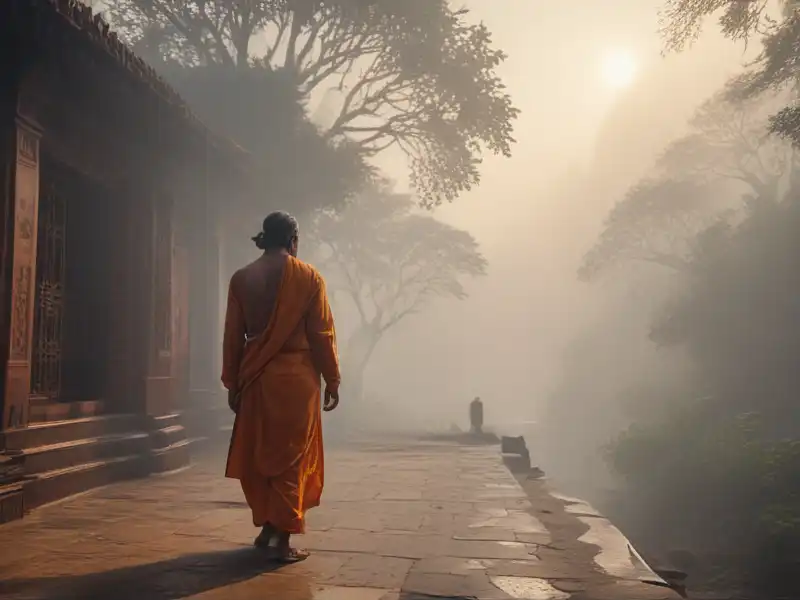
Spiritual Journeys: Cities in India for Soul-Searching and Serene Hotels
India is a land of diverse cultures, religions, and spiritual traditions. For centuries, seekers from all over the world have been drawn to its ancient wisdom and mystical energy. From the bustling st...Discover India's Vibrant Tapestry: A Journey Through Its Rich Culture and Traditions
Explore India's diverse culture through its festivals, art, and cuisine. Discover the unique traditions that weave together India's rich heritage and spiritual essence in this in-depth guide to the co...
Know the Difference: How to Differ a $0.05 Penny from a $5,000 One
Learn how to identify valuable 1944 Wheat Pennies by checking metal, color, mint mark, and condition. Discover why some 1944 pennies sell for thousands while others are worth only cents, and follow ex...India's Festivals: What and When
India has many cultures, traditions and beliefs. One of the most enchanting aspects of this country is its festivals. They are occasions for merrymaking and hold deep cultural and spiritual significance. Here are the most popular of them:
Diwali, known as the festival of lights, is perhaps the most widely celebrated festival in India. Observed by Hindus, Sikhs, and Jains, Diwali signifies the victory of light over darkness and good over evil. Homes and streets are adorned with twinkling diyas (oil lamps) and colorful rangoli (decorative patterns), while families gather to exchange gifts, share sweets, and offer prayers to the goddess Lakshmi for prosperity and blessings.
Holi, the festival of colors, heralds the arrival of spring with riotous splashes of vibrant hues. People of all ages come together to playfully douse each other with colored powders and water. This symbolizes the triumph of love and joy over hatred and discord. Traditional sweets like gujiya and thandai add to the festive fervor, as communities unite in a joyous celebration of life and renewal.

Dussehra, also known as Vijayadashami, commemorates the victory of Lord Rama over the demon king Ravana, as depicted in the epic Ramayana. The festival is marked by elaborate processions, theatrical performances and reenactments of the epic battle. It is a powerful reminder of the eternal battle between good and evil.
Navratri, meaning "nine nights," is dedicated to the worship of the goddess Durga and her various incarnations. In Gujarat, the festival is celebrated with energetic garba and dandiya raas dances, accompanied by devotional songs and prayers. In West Bengal, the streets come alive with elaborate pandals and colorful processions, as devotees immerse themselves in the spirit of divine grace and feminine power.
Eid ul-Fitr, the festival of breaking the fast, marks the end of Ramadan, the holy month of fasting observed by Muslims worldwide. It is a time of joyous celebration and gratitude, as families come together to share prayers, feasts and acts of charity. Traditional dishes, e.g., biryani, kebabs and sheer khurma, add to the festive atmosphere, as streets and homes are adorned with lights and decorations.
Onam, the harvest festival of Kerala, is a prime example of how festivals in India are intertwined with the rhythms of nature and the agrarian way of life. Amidst the vibrant floral decorations and spirited boat races, Onam Sadya—a grand feast featuring an array of traditional dishes—serves as a reminder of the bountiful blessings bestowed by Mother Nature.
Pongal, celebrated in Tamil Nadu, is another festival that pays homage to the agricultural roots of Indian society. As families gather to prepare the traditional dish of Pongal—a sweet rice pudding cooked with jaggery and spices—rituals honoring the sun god Surya reaffirm the importance of gratitude and humility in the face of nature's abundance.
Ganesh Chaturthi, dedicated to the beloved elephant-headed deity Lord Ganesha, is celebrated with great pomp and fervor across India. As intricately crafted idols of Lord Ganesha are worshipped and immersed in bodies of water, the festival serves as a poignant reminder of the cycle of creation and dissolution, of beginnings and endings in the eternal dance of life.
Raksha Bandhan, the festival of sibling love and bonding, transcends religious and cultural boundaries, uniting brothers and sisters in a bond of love and protection. As sisters tie colorful threads of rakhi around their brothers' wrists, the festival celebrates the timeless bond of family and the sacred duty of kinship.
India's festivals are a testament to the country's vibrant and diverse cultural heritage. They serve as a powerful reminder of the enduring values, beliefs, and traditions that have shaped the nation's identity over centuries. By exploring and experiencing these celebrations, we can gain a deeper understanding and appreciation of the richness and complexity of Indian culture, and the profound impact it has had on the world.

So, whether you find yourself amidst the colorful revelry of Holi or the serene prayers of Eid, embrace the essence of India's festivals with an open heart and a spirit of curiosity. For in these moments of celebration and togetherness, we discover the true essence of India—the spirit of unity in diversity, the beauty of tradition, and the timeless wisdom that transcends time and space. Join us as we continue our journey through the vibrant tapestry of India's festivals, discovering the stories, rituals, and profound significance they hold in the lives of its people.